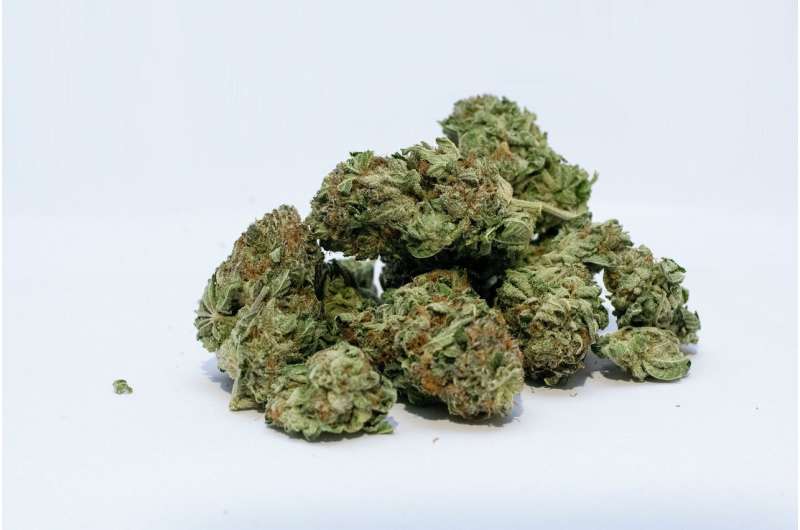

Chronic use of marijuana may greatly impact male fertility and reproductive outcomes, says a new report published online in the journal Fertility & Sterility. The study is the first to assess the impacts of substance use on testicular function via a mode of delivery, and dosage, that reflects current human consumption.
Clinician-scientists at the Oregon National Primate Research Center at Oregon Health & Science University monitored the reproductive systems of healthy male nonhuman primates following exposure to Delta-9-tetrahydrocannabinol, or THC—the main psychoactive ingredient in marijuana.
The nonhuman primates, all of reproductive age with a history of proven paternity and no prior exposure to cannabis, received a THC edible once daily over the course of seven months. Their THC dose was based on published medical marijuana acclimation recommendations for humans, and was increased every 70 days in alignment with the animals’ sperm development cycle. Dose adjustments were made until it reached the equivalent of a heavy medical marijuana dose in humans. Semen samples were collected at baseline before initiation of THC, and again at the end of each THC dosing timepoint.
“Our analysis of the collected samples found that THC use was associated with significant adverse impacts to the animals’ reproductive hormones, including decreased levels of testosterone and severe testicular shrinkage. Specifically, we observed a greater than 50% decrease in testicular size,” said the study’s senior author Jamie Lo, M.D., M.C.R., associate professor of obstetrics and gynecology (perinatology and maternal-fetal medicine), OHSU School of Medicine, and Division of Reproductive & Developmental Sciences, Oregon National Primate Research Center at OHSU. “Unfortunately, these effects appeared to worsen as the THC dose was increased, suggesting a possible dose-dependent effect.”
These results align with previous studies, conducted by Lo, that indicate similar THC-associated impacts to female reproductive hormones and the menstrual cycle.
“While more research is necessary to better understand the potential long-term impacts of THC in humans, these early findings are concerning from a clinical standpoint,” said study lead author Jason C. Hedges, M.D., Ph.D., associate professor of urology in the OHSU School of Medicine. “As the prevalence of edible marijuana use continues to increase in the U.S. and worldwide—particularly in males of prime reproductive age—even moderate doses could have a profound impact on fertility outcomes. While family planning may not be top of mind for those in their late teens and early 20s, the longer-term effects of THC on male reproductive health are not well-defined; it is possible that THC could cause lasting impacts that may alter family planning later in life.”
Source: Read Full Article